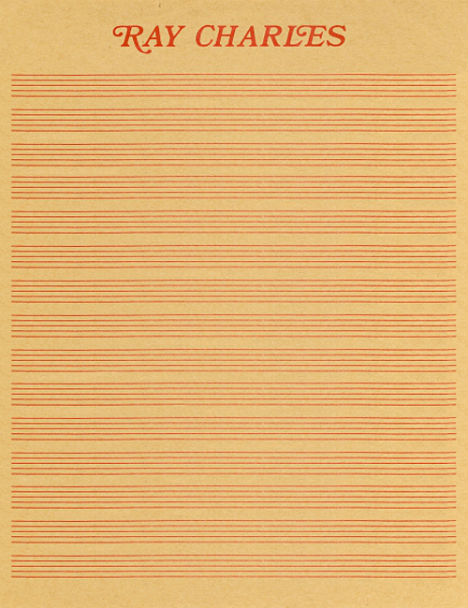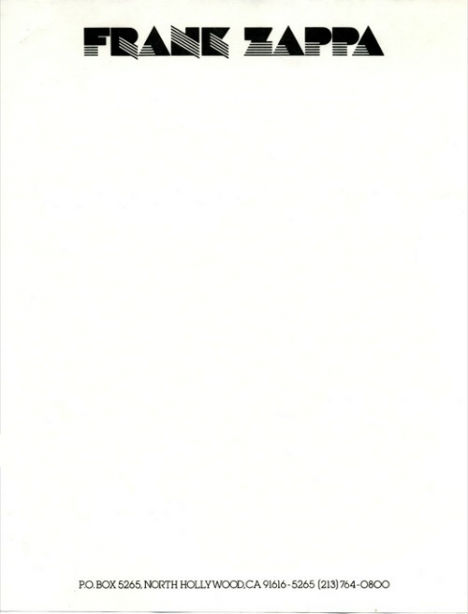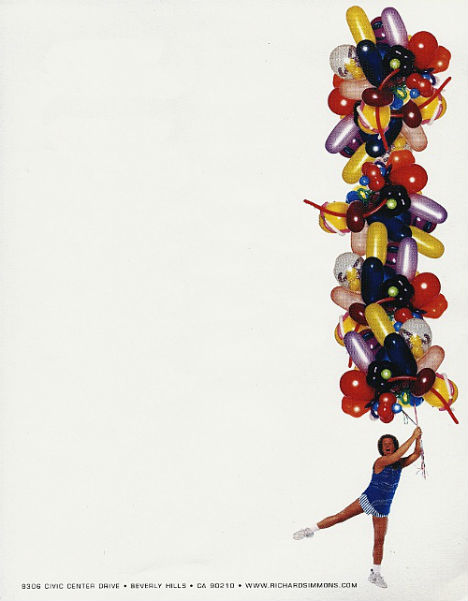


17 Creative Letterheads from Celebs & Public Figures | WebUrbanist
In 1933, renowned author F. Scott Fitzgerald ended a letter to his 11-year-old daughter, Scottie, with a list of things to worry about, not worry about, and simply think about. It read as follows.
Tech writer Brian Lam steps back and reflects on the perils of technology:
I owe my livelihood to technology and I love the raw capability it offers us as a tool, but I fear it a bit more than most people do. Its a tool, but its not quite a hammer, because a hammer doesnt seduce you into sitting around lonely in your underwear for 6 hours at a stretch clicking on youtube videos and refreshing twitter. I fear technology because I fear that bad feeling I get after a three day x-box binge I go through every year around the holidays. I fear technology not because I think its evil, but because its too easy to start clicking and never stop, even if the stream of data starts to go from meaningful to useless after the top 5%.
In a typed letter written in 1955, David Ogilvy shared his “appalling” habits as a copywriter.
 Paula Deen’s new cookbook (as imagined by Megan Amram). Here’s a taste:
Paula Deen’s new cookbook (as imagined by Megan Amram). Here’s a taste:
FRUIT SALAD
INGREDIENTS:
1 lb. bag of Skittles
3 cups ranch dressingDIRECTIONS:
Mix well. Serve room temperature.
See also: PaulaDeenRidingThings.com
William Safire’s rules for writers:
via Coudal
Science writer Ananyo Bhattacharya flips the common complaint leveled at journalists and tries to help scientists understand journalism:
Your headline is hyperbolic
The purpose of a headline is not to tell the story. That’s the purpose of the story. The purpose of the headline is to pique the interest of readers without lying. So the next time a multi-squillion pound experiment reports evidence of neutrinos going faster than the speed of light, don’t expect the headlines to say “Astonishing but esoteric particle physics finding likely to be flawed though no one can see how yet“.
I think these are useful for all non-journalists…
Nine ways scientists demonstrate they don’t understand journalism | Guardian.co.uk
Love this phrase.
rantum scoot n Also random scoot, rantum scooting [From rantum scootum, var of rantum scantum harum scarum, disorderly]
An outing with no definite destination.
1878 Atlantic Mth. 41.645 neNY, Starting out for a day’s tramp in the woods, he would ask whether we wanted to take a “reg’lar walk, or a random scoot,” the latter being a plunge into the pathless forest. . . And when the way became altogether inscrutable, “Waal, this is a reg’lar random scoot of a rigmarole.” [1885 Harper’s New Mth. Mag. 70.614 FL, He’s a deal sight more serious-minded than most of the rantum scootum boys one has to put up with in a wanderin’ life like this.] 1896 DN 1.423 Nantucket MA, Rantum scoot: pleasure drive. 1916 Macy–Hussey Nantucket Scrap Basket 142, “Rantum Scoot”—A term, we believe, peculiar to Nantucket, and very old. It means a day’s “cruise” or picnic about the island, usually a drive, but it might be on foot. The distinctive feature of such an excursion is that the party has no definite destination, but rather a roving commission, in which respect such a trip differs from a “squantum”. . . “Rantum” is probably a corruption of random. 1997 DARE File Nantucket MA, “Rantum scooting”—random scouting: picnics, trips with no destination.